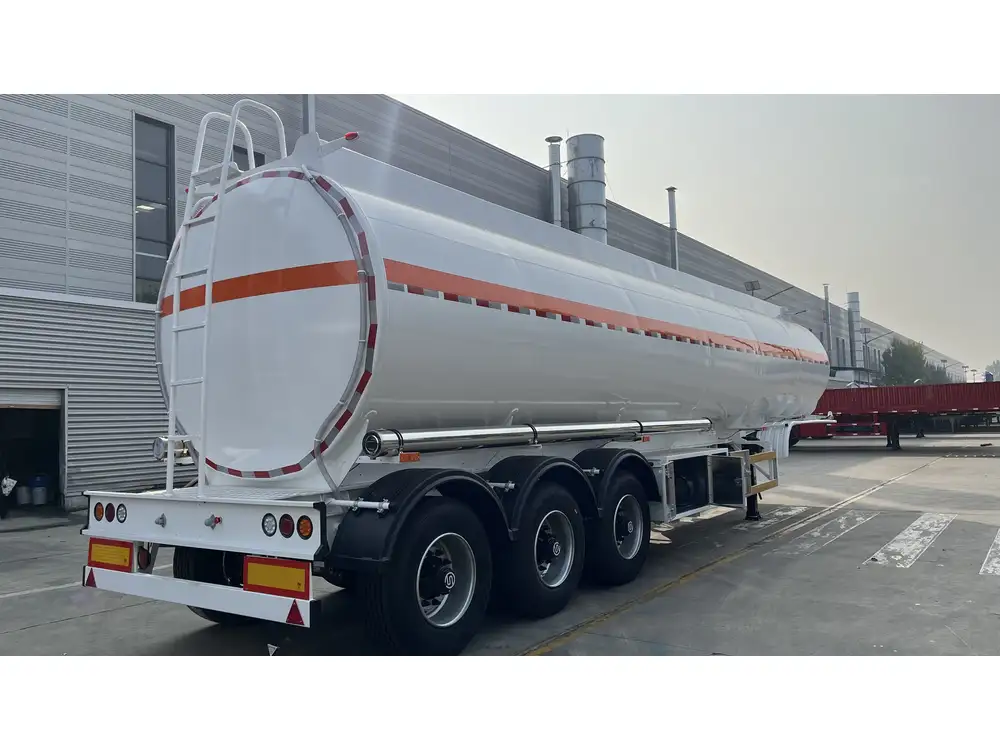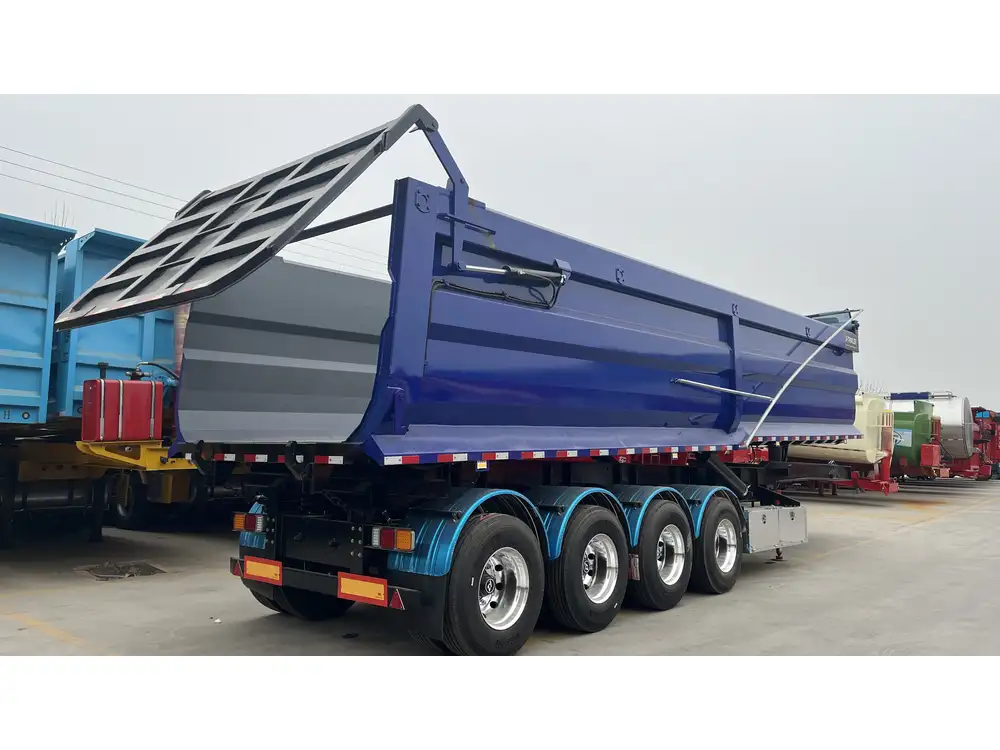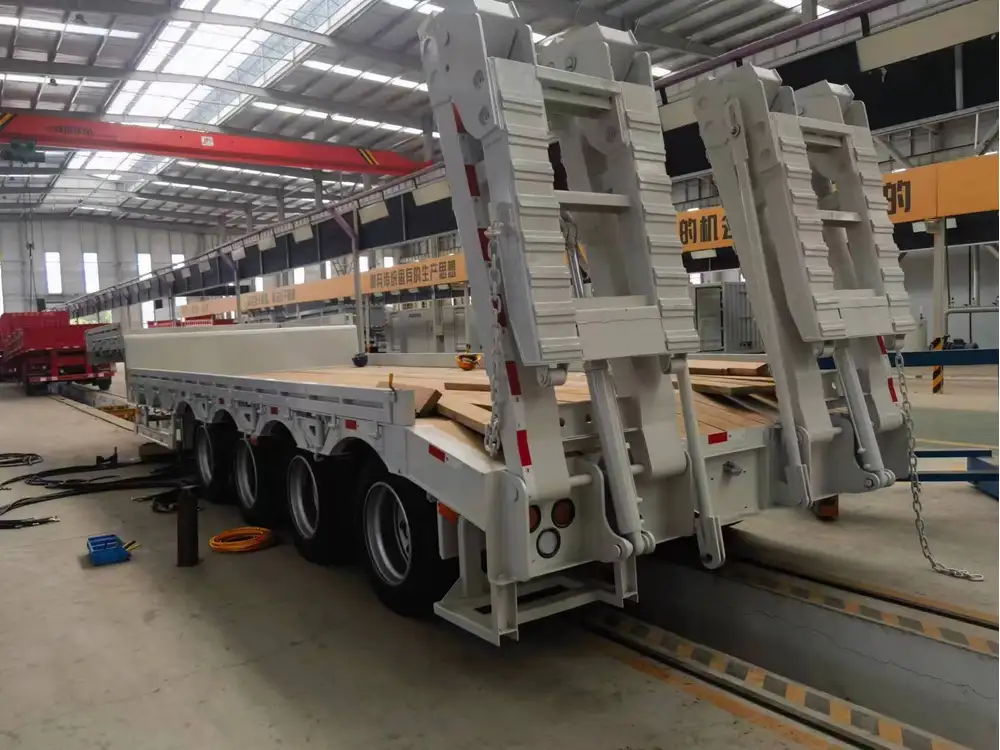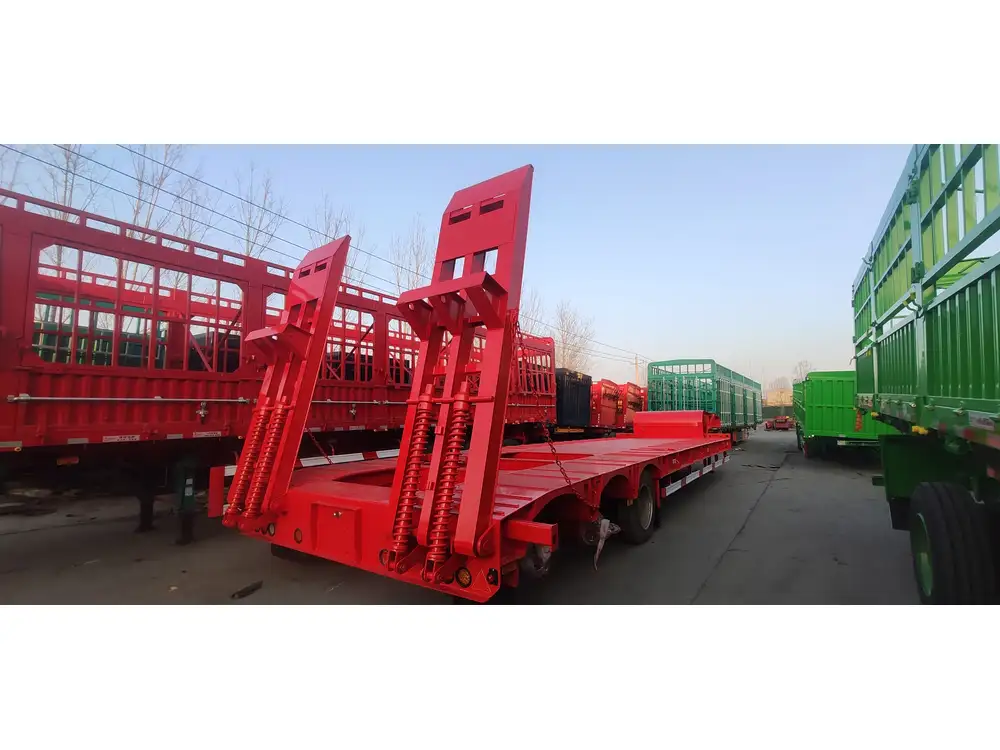When it comes to maintaining dump trailers, selecting the appropriate hydraulic oil is paramount for optimal performance, longevity, and efficiency. A proper understanding of hydraulic fluids can significantly enhance your equipment’s operational reliability and effectiveness. This guide will explore the various types of hydraulic oils suitable for dump trailers, the specifications to look for, and best practices for maintenance.
Understanding Hydraulic Oil
Hydraulic oil is a vital component in the hydraulic systems of dump trailers, enabling the power transfer necessary for lifting and hauling heavy loads. Its primary functions include:
- Lubrication: Reducing friction between moving parts.
- Heat Transfer: Dissipating heat generated from hydraulic components.
- Contaminant Removal: Capturing debris and impurities that can hinder performance.
Types of Hydraulic Oils
Hydraulic oils can be classified based on their base materials, additive packages, and viscosity. Understanding these distinctions ensures that users make well-informed decisions.

1. Mineral-Based Hydraulic Oil
Most commonly used, mineral-based hydraulic oils are derived from refined crude petroleum. They are well-known for offering:
- Cost-Effectiveness: Generally cheaper than synthetic alternatives.
- Availability: Readily available across various suppliers.
However, mineral oils may not perform as well in extreme temperatures.
Considerations:
- Viscosity Level: Most dump trailers recommend oil viscosity of ISO VG 32 to 68.
| Viscosity Grade | Temperature Range (°F) |
|---|---|
| ISO VG 32 | 0 to 120 |
| ISO VG 46 | 20 to 130 |
| ISO VG 68 | 30 to 140 |
2. Synthetic Hydraulic Oil
Synthetic hydraulic oils are specifically designed for enhanced performance, offering superior stability and lower volatility.
- Temperature Resistance: Performs well in extreme cold and hot conditions.
- Extended Oil Change Intervals: Reduces the frequency of oil changes.
When to Use: If your operations involve extreme temperatures or heavy-duty usage, synthetic oils may be the best choice.
| Feature | Mineral Oil | Synthetic Oil |
|---|---|---|
| Temperature Range | Limited | Wide operational range |
| Lifespan | Shorter | Longer |
| Cost | Lower | Higher |
3. Biodegradable Hydraulic Oil
With increasing awareness about environmental impacts, biodegradable hydraulic oils are gaining popularity. Made from renewable resources, these oils offer:
- Environmental Safety: Less harmful to ecosystems.
- Regulatory Compliance: Meets stringent environmental regulations.
Considerations: While biodegradable oils are beneficial for the environment, they can sometimes be pricier than their petroleum counterparts.

Selecting the Right Hydraulic Oil
When it comes to choosing the right hydraulic oil for your dump trailer, consider the following factors:
Manufacturer’s Recommendations: Always refer to the manufacturer’s manual. Recommendations will dictate the required viscosity and oil standards.
Operating Conditions: Analyze the environmental factors such as typical temperatures and operating loads.
Additive Package: Look for oils with anti-wear, anti-foam, and rust prevention additives.
Common Standards & Specifications
When evaluating hydraulic oils, users should be aware of various specifications that indicate quality and performance. These specifications include:
- ISO Standards: The International Organization for Standardization develops viscosity grades such as ISO VG 32, 46, and 68.
- SAE Standards: The Society of Automotive Engineers contributes to viscosity standards, notably for low-temperature and high-temperature operations.
Maintenance Tips for Your Hydraulic System
An effective hydraulic oil can only perform optimally under proper maintenance practices. Here are crucial maintenance tips to keep your hydraulic system functioning smoothly:

1. Regular Oil Checks
Regularly monitor the oil level in the reservoir and perform visual inspections for contaminants. Any signs of discoloration, foam, or odors may indicate issues with the oil quality.
2. Scheduled Oil Changes
Set a routine oil change schedule based on usage and oil type. Synthetic oils require less frequent changes than mineral oils.
3. Filter Replacement
Hydraulic filters play a critical role in keeping your system clean. Schedule regular filter changes to avoid any build-up of debris that can cause system failure.

4. System Testing
Conduct periodic tests for viscosity, moisture content, and other oil properties. Consider a fluid analysis program for comprehensive insights.
Troubleshooting Common Hydraulic Issues
Even with proper maintenance, hydraulic systems can experience issues. Understanding these problems can save time and money.
1. Inadequate Power
This could be due to low fluid levels, contaminated hydraulic oil, or a malfunctioning pump. Check the oil level and condition immediately. If the problem persists, consult a technician.

2. Unusual Noises
Hissing, grinding, or whirring noises from the hydraulic system often indicate air trapped in the system or malfunctioning components. Bleeding the system may resolve noise issues.
3. Leaking Fluid
Hydraulic leaks can compromise the integrity of your operations. Inspect hoses, fittings, and seals for damage and replace them as necessary.
Seasonal Considerations
The performance of hydraulic oil can vary seasonally. Here are some considerations for various climate conditions:

Cold Weather
In colder climates, use oils with lower pour points and excellent viscosity indexes. Synthetic oils are often preferred due to their superior low-temperature performance.
Hot Weather
For hot and humid climates, oils with high viscosity and thermal stability are required. Be cautious of overheating, which can significantly reduce the oil’s lifespan.
Conclusion
Selecting the right hydraulic oil for your dump trailer is indispensable for efficient operation and longevity. With considerations ranging from viscosity to temperature requirements, understanding your specific needs can lead to a more productive operation.
By adhering to the manufacturer’s recommendations, maintaining your hydraulic system, and monitoring the oil condition regularly, you can significantly reduce the likelihood of equipment failure and enjoy smooth operations. Whether you choose mineral-based oils, synthetic options, or environmentally-friendly alternatives, ensuring that you have the right oil will lead to enhanced performance benefits that align with your operational demands.
Incorporating these industry insights and guidelines into your dump trailer’s maintenance routine will not only safeguard your investments but also ensure that your operations run seamlessly, no matter the conditions.



